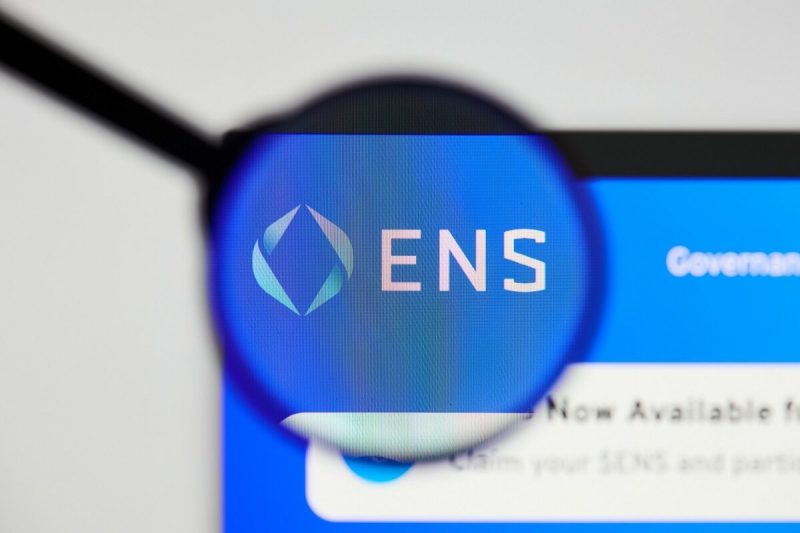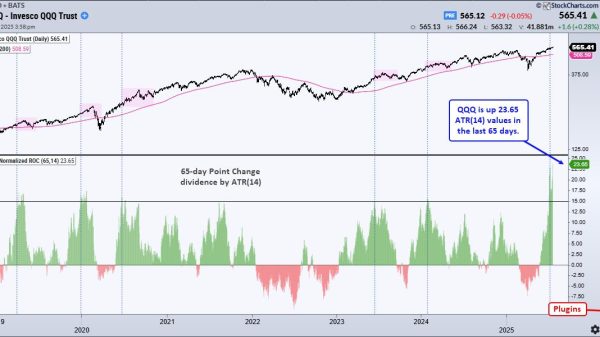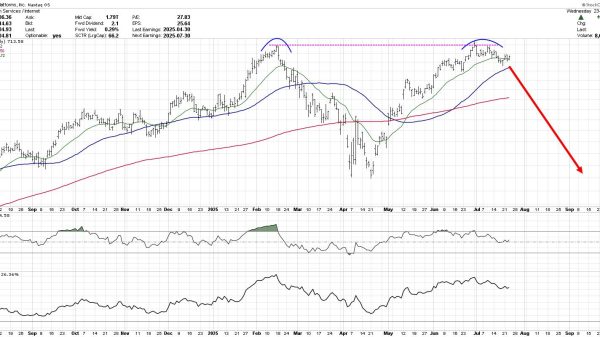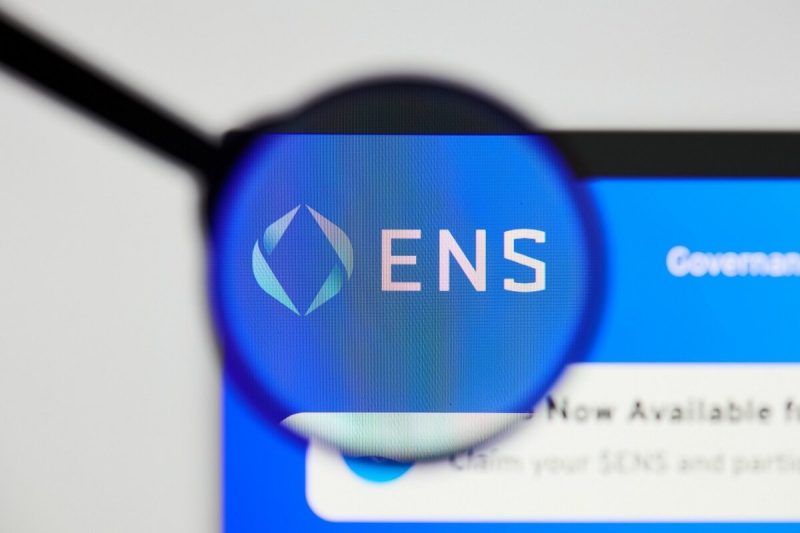
Just as the internet advanced with the evolution of the Domain Name System (DNS) – which turns domain names into IP addresses – the crypto sector is undergoing a similar transition with the implementation of on-chain domain names.
What are On-chain Domains?
Sandy Carter, COO and Head of Business Development at Unstoppable Domains – a decentralized domain service provider – told Cryptonews that on-chain domains are blockchain-based domain names that provide a decentralized alternative to traditional DNS’s.“
While DNS has served the business identity market well, it falls short of addressing the broader landscape of consumer identity, which includes payment handles, social media profiles, email addresses, and phone numbers — areas in which on-chain domains offer the most value,” Carter said.
To put this in perspective, on-chain domain registrar 3DNS Founder and CEO Paul Gauvreau told Cryptonews that on-chain domain names allow crypto users to type in a name – like bob.eth for example – instead of complex wallet addresses when conducting cryptocurrency transactions.
On-chain domains may also be referred to as “digital identities.” Algorand on-chain domain builder TxnLab Inc. Co-Founder and CFO John Mizzoni told Cryptonews that users can add metadata such as an X account, Discord account, or Telegram account to decentralized domains.
Adding metadata to these can help verify that a crypto wallet address belongs to a specific individual.
“If a user has a domain that is integrated across much of the crypto space, their profile is traveling with them no matter what application they’re using,” Mizzoni said. “This is fundamentally a much better model for users, as they can take their data or identity with them across different platforms.”
The Advancement of On-chain Domains
Although on-chain domains are a relatively new concept, the sector has seen impressive growth since these offerings began rising in popularity about three years ago.
Carter said Unstoppable Domains has registered about 4 million decentralized domains to date, integrating crypto wallets with browsers such as Brave and Opera. She added that Unstoppable recently partnered with fifteen registrars — including two ICANN-accredited registrars, Entoro and GMO Internet Group — enabling them to offer Unstoppable’s domains to their clientele.
While Carter believes that these partnerships have helped expand the global reach of on-chain domains, the recent collaboration between GoDaddy and Ethereum Name Service (ENS) – a naming system based on the Ethereum blockchain – further shows mainstream interest in decentralized domains.
We’re thrilled to announce our partnership with @GoDaddy
Millions of customers can now use their DNS domains in the ENS ecosystem!
Let’s dive into what this means pic.twitter.com/PyrZi4e5cV
— ens.eth (@ensdomains) February 5, 2024
Enhanced Utility for Web2 Domains
GoDaddy President of Domains Paul Nickstold Cryptonews that the goal behind the partnership with ENS is to enhance utility for GoDaddy domain owners, ultimately positioning the company’s domains as the destination for a user’s digital identity.
“We have recently engaged with blockchain technology in response to our customers’ expressed interest in integrating crypto wallets with their domains,” Nicks said. “ENS shares a vision with GoDaddy, bridging the gap between the scalable and secure DNS infrastructure, and emerging trends in the blockchain space.”
Nicks added that GoDaddy’s partnership with ENS focuses on providing enhanced functionality for customers with existing crypto wallets.
For instance, Nicks explained that the collaboration with ENS lets users link their GoDaddy domain name to ENS and their crypto wallet address, enabling the receipt of crypto payments using their domain name as the wallet address.
Users can still receive crypto payments through their regular crypto wallet address, but this collaboration creates additional ease of use, along with familiarity for non-crypto native users.
Source: GoDaddy
The Narrative Has Changed
Don Ruiz, General Manager at Trust Machines – a team of builders focused on growing the Bitcoin ecosystem – told Cryptonews that on-chain domains were initially positioned as a solution to the friction caused by public keys, serving as an asset to send and receive crypto between users.
Yet recent developments like the GoDaddy and ENS partnership have led Ruiz to believe that the narrative around on-chain domains is quickly changing.
“There is an evolution happening now where many could argue that on-chain domains could potentially replace traditional Web2 domains,” he said.
However, Ruiz noted that such a scenario is yet to occur for a number of reasons.
“The use case for on-chain domains remains more in line with the ethos of digital identity,” he explained “Given this, I believe that in the next few years, Web3 digital identities will help bridge the gap for Web2 domains by acting as a complementary service to expand a domain’s usability.”
Ruiz may be correct, as Nicks pointed out that the broader impact of on-chain domains for mainstream adoption depends entirely on digital preferences.
In the meantime, Nicks believes that the collaboration between GoDaddy and ENS will particularly resonate with customers already engaged in the crypto space.
Echoing this, Mizzoni remarked that on-chain domains are currently beneficial for users with a crypto wallet.
“So until crypto is used in more applications, you won’t see a tremendous need for a decentralized naming service,” he said. “The real mainstream adoption of these services will occur when crypto accounts are generally more utilized.”
For example, Mizzoni pointed out that the decentralized social network Farcaster benefits from on-chain domains since every account on the network is tied to a crypto wallet.
“You can either use a Farcaster ID as a username, or you can use your ENS (.eth) domain that’s already tied to your ETH account,” he explained. “This allows users to simply connect their wallet address and have their profile already, no matter which client they’re using to interface with Farcaster.”
Challenges to Consider
Implementation of on-chain domains may be challenging, however, resulting in slow mainstream adoption.
According to Ruiz, the disadvantages of on-chain domains are mostly centered around narrative and scale.
“Coming from the Web2 world, there are new entrants in the space, and projects aiming to add utility to digital identities, but the technology and processes remain confusing and clunky,” he said.
Given this, Ruiz believes that education, along with simplifying the user experience is necessary for Web2 domain providers to begin implementing on-chain domain capabilities.
He added that as more players in the Web3 domain space work with The Internet Corporation for Assigned Names and Numbers (ICANN), on-chain domains are likely to become closely tied to Web2.
“I predict this will become the path for all on-chain domain servicers looking to create a technological bridge for users into Web3,” he said.
Yet as on-chain development occurs, Ruiz pointed out that the next question to consider will be where users will want to settle their digital identity, as a number of blockchain ecosystems have started to implement on-chain domains.
For instance, while ENS and Unstoppable Domains may be leading players in the sector, users can register .BTC domains, along with many others.
“Stacks ties in with .BTC domains via BNS, the Bitcoin Name System on Stacks, and are registered through a smart contract and secured by Bitcoin,” Ruiz explained.
Mizzoni added that NFDomains is a Web3 company that offers Algorand users domain options with the .algo suffix.
Brian Newar, communications lead for HNS – a registry of on-chain domains on the Hedera Public Network – told Cryptonews that HNS provides Hedera users the ability to claim their identity within the Hedera ecosystem.
While it’s notable that on-chain domains are gaining adoption within the Web3 ecosystem, Nicks shared that GoDaddy’s current priority is to provide value only through ENS.
“We are not planning to team up with other organizations right now, but we are always willing to consider opportunities that address our customers’ needs,” he said.
Given this, .ETH domains may be the most used option for settling digital identity currently, along with serving as a bridge between Web2 domain names and crypto wallets.
The post On-Chain Domains Expand Usability of Web2 Platforms appeared first on Cryptonews.





























